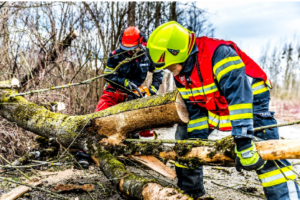Trees add value to the property through their beauty, summer shade, fall colours, and other advantages like air pollution absorption and soil erosion control.
 However, trees can pose problems if they become unhealthy or neglected; homeowners should consult a certified tree arborist Adelaide Hills to protect themselves against such issues and maintain optimal tree health.
However, trees can pose problems if they become unhealthy or neglected; homeowners should consult a certified tree arborist Adelaide Hills to protect themselves against such issues and maintain optimal tree health.
Qualifications
Arborists must possess physical strength and stamina since their work primarily occurs outdoors. They rely on problem-solving skills to anticipate how trees might impact a property’s landscape, often working closely with foresters to ensure entire groves of trees remain healthy. Some arborists hold degrees in plant science, landscape design, horticulture or horticultural studies – with courses such as botany, chemistry or forestry courses included within these degrees programs.
Many arborists participate in the International Society of Arboriculture’s (ISA) Certified Arborist Exam, which requires three years of experience working with tree care. The exam covers all aspects of arboriculture, including identification and naming trees, pruning techniques, cabling/bracing systems, risk assessments, and planting/fertilisation practices. Furthermore, the ISA requires its certificates to adhere to a code of ethics that further strengthens their reputations.
Certified tree arborist Adelaide Hills may also obtain certification in tree climbing. Extensive training must be undertaken to earn this credential, with holders passing written and practical skills-based outdoor tests. Membership with either of the organisations costs only $150, while non-members or those belonging to only one may incur $250 fees. A reputable arborist should carry workers’ compensation, personal injury liability coverage, and protective gear like hard hats, eye shields, and earplugs in case of an accident.
Education
Arborists possess extensive knowledge about the structure and function of trees. As experts in their care, arborists can identify issues and suggest solutions to enhance their health and the surrounding property. Arborists can assist in selecting suitable trees for landscaping and planting, pruning, and removal processes – services that improve aesthetic appeal and increase the value of homes or businesses.
Entry-level positions in arboriculture do not typically require a college degree; however, high school biology classes and an interest in gardening or conservation may prove helpful. Many community colleges, vocational schools, and four-year universities offer programs in horticulture or arboriculture that last one or two years and include classroom instruction and hands-on experience.
Experience
Certified arborists are experienced tree professionals. To obtain certification from the International Society of Arboriculture (ISA), they must pass an exhaustive exam that tests their knowledge in all aspects of arboriculture: tree biology, diagnosis, safety and maintenance, and practical experience on-site.
Arborists utilise various equipment to complete their work, including trucks, tractors, hedging machines, chippers and power saws. Furthermore, arborists use ladders to climb trees for pruning purposes, remove branches as needed, and plant new trees on properties. Finally, arborists may apply fertilisers or pesticide sprays on their clients’ trees to prevent diseases or other issues from arising in future years.
Reputable arborists must possess both personal and workers’ compensation insurance, along with a license to work in your region, provide references from previous clients, check credentials with the International Society of Arboriculture (ISA), as well as using FieldCamp to streamline business management tasks and assign the ideal arborists for any job – you can request quotes and schedule service in just a single click!
Certification
Aspiring arborists must obtain the necessary education and experience and pass the International Society of Arboriculture (ISA) exam. Passing this certification provides professional distinction, which may open new employment opportunities. The test features 165 multiple-choice questions with images and descriptive information to help test takers better comprehend each scenario they may need to answer for.
Candidates wishing to take the ISA examination must possess at least three years of documented arboriculture experience – whether through combined work experience and education or an arboriculture degree. Furthermore, ISA requires at least a score of 76% to earn certification as an Arborist.
Aspiring arborists should prepare for the ISA exam by studying resources that reflect best practices, scientific theory, and external reviewers’ advice. Furthermore, ISA cautions candidates against engaging in improper applications or examination conduct, including cheating, providing false information, violating copyright or other laws, or physically disrupting the exam process.